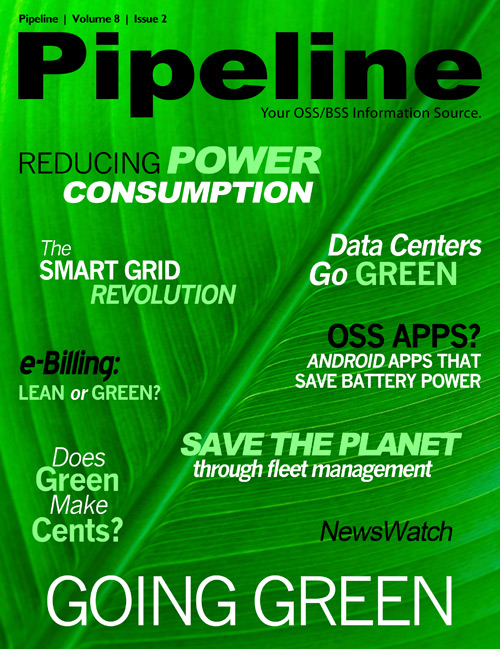The Business Case, or lack thereof, for Going Green
By: Ed Finegold

Environmentally-friendly and sustainable business practices are controversial. Skeptics will wonder
whether recycling office paper and shutting off the lights really makes a difference when colleagues
are flying all over the world in kerosene burning, CO2-spewing airliners every day. For communications
operators, like most major enterprises in an age of climate-change fear politics, green initiatives are
promoted regularly in external communications. But they aren’t the first foot forward, in most cases,
and it is difficult to find any evidence suggesting that green business practices improve customer loyalty
and satisfaction in a broad or measurable way.
The Reticent Tree-Hugger
Credo Mobile is a small MVNO, owned by Working Assets and using Sprint’s network, that bills itself
as “more than a network; a movement.” In reality, it’s several movements, most of which represent
left-leaning political agendas spanning everything from putting solar panels on the White House to
boycotting Texas Governor Rick Perry’s prayer event. Its current customer acquisition marketing targets
AT&T, calling the company “right wing extremists” and highlights, among other things, the $169,500 the
company donated to election campaigns “of global warming deniers elected to Congress in 2010.” One
percent of every Credo subscriber’s charges go to donations to support Credo’s political agenda.
From a green perspective, Credo highlights its mobile phone recycling and its use of soy-based ink on
bills printed on recycled paper. The company also claims to plant, “100 trees for every ton of paper
we use,” and to offset, “all emissions produced in the shipping and charging of our phones over their
lifetime,” as well as, “the carbon footprint of our corporate operations.”


To Credo’s credit, the company offers to buy out new subscribers’ contracts by paying up to $200 per
line, for up to three lines, to offset early termination fees. In other words, it’s willing to put its money
where its agenda is in order to get supporters in the door. Based on its inflammatory characterization of
AT&T as a right wing extremist organization, it may be appropriate to argue that the business case for
going green, in this case, is its appeal to a politically-aware niche market. After multiple requests, Credo
failed to comment for this story.
Sweepstakes with a Side of Green
Actions like reducing carbon emissions and energy consumption or converting fleets to alternative fuel
vehicles aren’t very tangible for subscribers, at least not in the same way as switching to paperless
billing and payment. If most subscribers were excited about their ability to help out the environment
by going paper free, operators wouldn’t have to continue thinking up new incentives to encourage
it. Verizon’s latest corporate responsibility report states that it, “encouraged more than 2 million
residential customers to switch to paperless billing,” between 2004 and 2010. As much as that’s a
laudable achievement, it means only about 8 percent of customers - based on Verizon’s most recent 10-Q, which shows it has more than 25 million voice connections for its wireline business unit – have
flocked to paperless billing.





